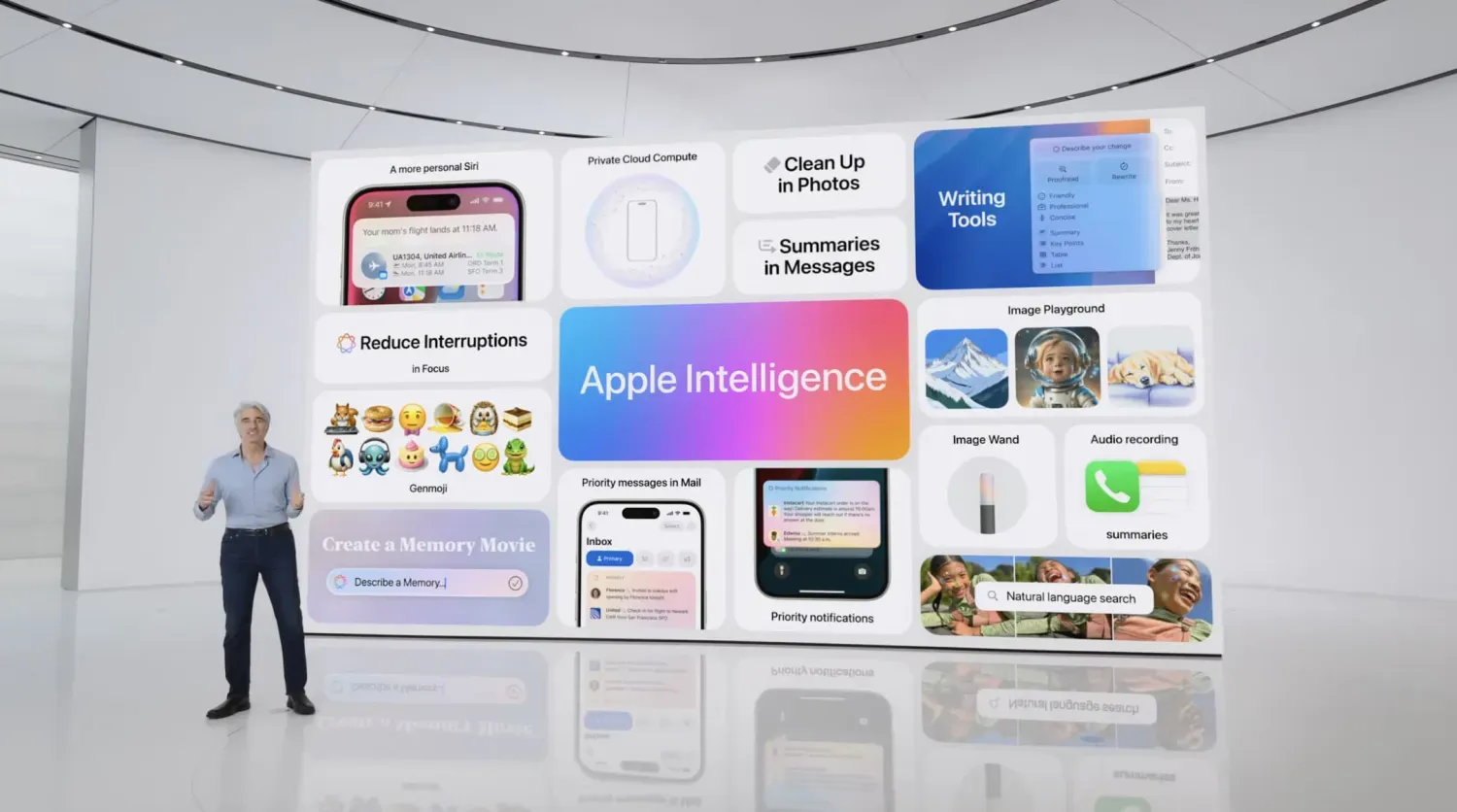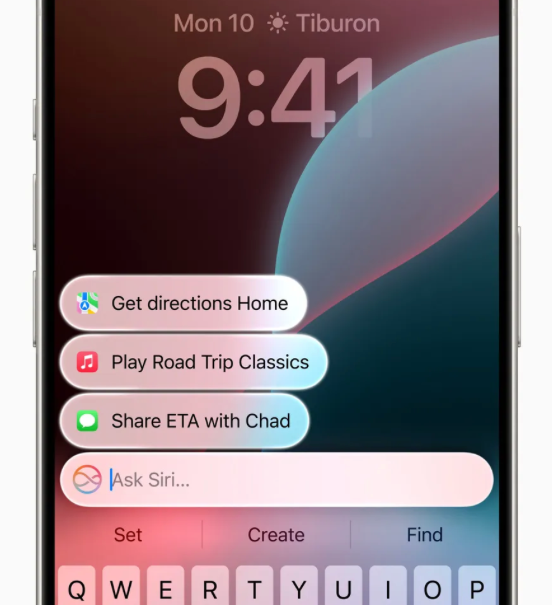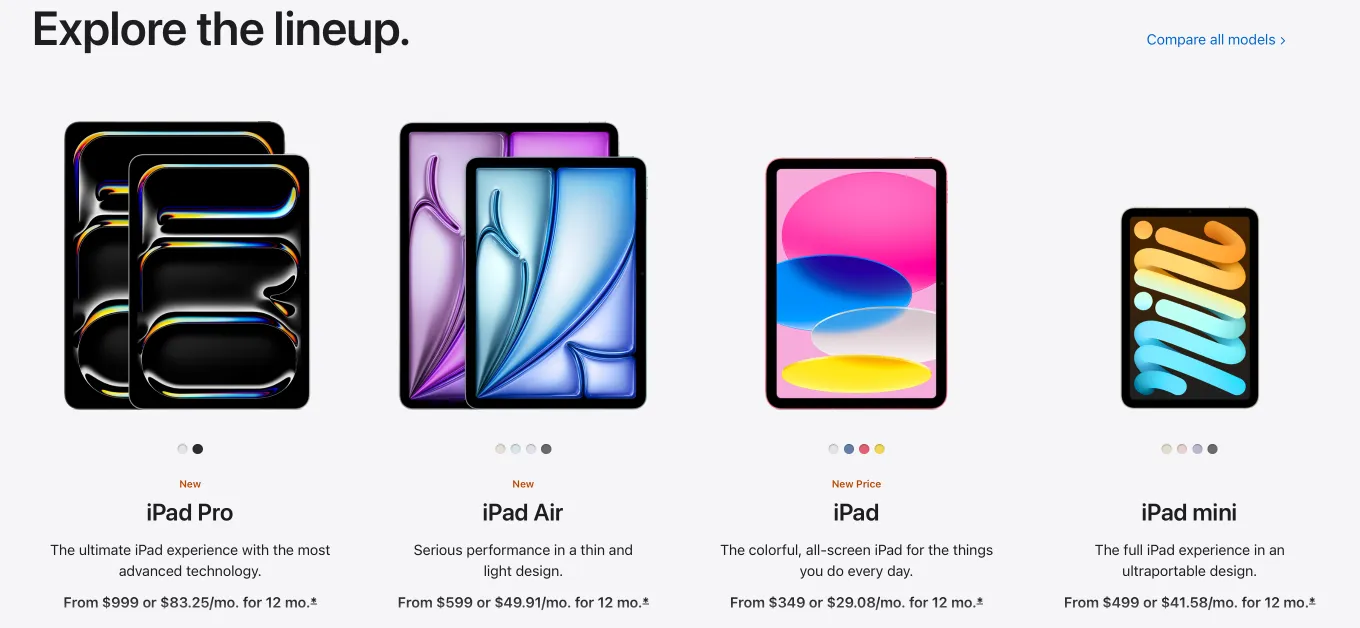Apple Intelligence: Apple’s new strategy to make you want a new iPhone
That is, after all, how they make their money

Before, it was the camera. Every year like a third of the whole presentation would be focused on the incremental camera upgrades. And another third would often be about the new chip powering the device (and the camera!) But Apple has always had their work cut out for them in justifying the purchase of the newest iPhones, iPads and Macs.
That is after all how they make their money, as opposed to selling users’ data to the highest bidder, like the competing platform is known for.
There have always been two competing forces in the Apple product lineup: Unity, or the idea that all Apple devices should share certain core properties. And, Segmentation, the idea that some Apple products need to be better than others, to justify their higher prices. And if you look at the “good, better, best” model of marketing, this is actually nothing new. The new thing now is how Apple seems to be planning on further differentiating their Pro iPhone lineup.
Another Paradigm Shift
It might take me a whole separate article to adequately cover everything Apple Intelligence should be able to do. It's another one of those things where one of the limits really is your imagination.
You'll be able to ask Siri to summarize conversations and ask what one person said about a particular topic, instead of having to hunt down that message yourself. You'll be able to tell Siri to tell someone a piece of information automagically. Take this below example of Siri suggestions from Apple that could pop up when it knows you're driving:

Basically they want to plug every piece of information from your phone's system into each other. Your Maps app knows where your hotel is because the hotel emailed it to you. Your calendar already knows about that appointment because you got a text about it. Stuff like that is in the deck now.
Past paradigm shifts and what they've meant
When the iPhone first came out, the stratification was based on who had an iPhone and who was still using their funky ol’ Motorola Razr. You paid more for the iPhone because it did more. But then over the next few years the goalposts shifted. Now, if you don’t have a smartphone, you’re basically cut off from a lot of things. And if your service or company isn’t on the internet, it may as well not exist for a lot of people.
It really was an increase in the information that was available, but only for those who could afford it, or otherwise justify the purchase of the new gadget.
I’m not the first person to point out that the iPhone was a true paradigm shift in that it changed how we do everything, for better and for worse.
Now, Apple is trying to pull this same trick again. This time, though, it requires segmenting their product lineup even further, to a point thatt it’s confusing. And that’s a problem. They have done some good design work to convey the affordances of the new AI system, but the whole thing still suffers from one of the core problems of LLM AI tech; it doesn't show you or tell you everything it can do. You may still have to try stuff for yourself to find out for sure what really works.
Confusing stratification
Who gets which new features?
It’s now unclear at a glance which new software features are coming to which devices. The umbrella term for features only coming to new devices is “Apple Intelligence,” so that is now an extra distinction that a customer has to make when considering an Apple product.
The iPad lineup has already suffered from this problem for a few years now. It’s not clear which iPad is best for who, or which features one gives up by choosing the budget model.
The bait & switch
You might hear that the new iPad is only $300 and decide to go check it out. Once you get into the store you see the iPads next to each other. You don’t know at a glance how much each one costs, you can just see they’re called iPad, iPad Air and iPad Pro. The Pro is clearly the best one, the Air looks good enough, and the iPad looks just barely good enough by comparison. So already you’re leaning more towards the Air, just by the presence of the Pro.

The low price of the lower tier offering gets you into the store, where you will have to walk past the better versions of what you’re there to buy.
By the way, they figured out a new better way to tell the different models apart: just write the name of the model into the wallpaper. The Pro iPad default wallpaper says "PRO" in gray rounded letters and the iPad Air says "AIR" in chonky angular letters, and now you can't unsee it. They did the same thing on the MacBooks Pro and Air. And that, too, shall remain seen by all.
Apple Intelligence is the new thing to get everyone into the store. It’s a wide-reaching announcement now, thanks to Elon’s bitching and getting fact checked on his own platform.
But to be fair, it’s not only the newest newest hardware that get these features. Every iPad and Mac with an M series chip will also get these features, which is all the iPads and Macs from the last 3-4ish years. So if you want to get in on these features without buying a new iPhone, you can also get in on it by getting an iPad Air or an older iPad Pro.
Marketing, creating problems for itself
It’s easy for some people to see this move as Apple being a stingy smartass, and that’s kind of Apple’s own fault.
They don’t want people to realize the conflict in their marketing messaging, and that’s becoming a tight rope to walk. They want people to think when they first hear about Apple Intelligence, to think that it’s a free service coming to all apple users automatically, and then find out that it’s only for M series chips and the latest iPhone chip.
Later this year when we get the iPhones 16 announcement is when we’ll find out if these features will stay pro-only or if they will come to the next wave of base iPhone models. And if you ask me, it’s a tossup at this point. I could see it going either way.
”The same thing every year.”
The difficult truth is that it’s actually not the same thing every year. It looks the same on the outside, and a lot of work goes into that.
The iPhone’s processor gets upgraded pretty much every year. Apple designs their own processor chips, which is how they achieve that tight integration between hardware and software. They write software to run on their hardware and they make the hardware to run their software.
For several years now Apple have been including a “neural engine” as part of their chip designs, and my reaction has pretty much been, “Why?” They have a few features and functions that might use it, but nothing so important that it should need its own chip, i thought. But they have also been slowly adding things like the widget smart stack and rotation, which surfaces the right widget in the stack when it’s relevant (like showing the weather widget when it’s raining.) Predicting when information will be relevant by having the device itself be able to pick up on patterns in the user’s usage. Processing it on the device so it doesn’t have to get sent to servers to be processed, so the information stays private.
Value Proposition
For years the value proposition of buying a new iPhone has been vague at best. They focus on things that don’t matter to people but let important features fly largely under the radar. This year they have made a lot of the same mistakes but they’ve gotten a bit closer to the mark.
The iPhone is, at its core, a multitool. It’s a communicator, a camera, a calculator, an entertainment device, a work appliance, it can be almost anything you can imagine. Back during the original pitch in 2007, Jobs more or less described it as “a widescreen iPod with touch controls, a mobile phone, and an internet communications device.” He could’ve added a fourth thing though, and that would be “a camera.” That’s how Apple has treated the iPhone for the last like 5 years, as a camera. The ultimate camera because you always have it with you, and they say the best camera is the one you have. So they kept relying on that until long past the point we got sick of it.
Now the new thing is going to be Intelligence. New AI features that only run on the newest chips, because they designed the chip to run the software and they designed the software to run on the chip. They make products to sell. They put work and money into developing the software so they want to sell it.
Will it be possible to run Apple Intelligence features on an older iPhone? Maybe. Probably, even. But it wouldn’t run as well as Apple would want, and that would give people a worse overall impression of the product.
Wrap up
I'm a little disappointed by what I see as Apple making a similar series of mistakes as everyone else in the AI space. They have done some things better like deciding on which functions to highlight, but they didn't really capture the wide-open paradigm shifting nature of this change. Of course we will have to wait and see if it really happens like that.
